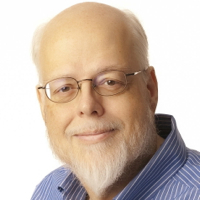Among the most over-used and archaic adjectives you can apply to a politician is to call him "Kennedyesque," conjuring up the telegenic good looks of John F. Kennedy. Wisconsin Republican Paul Ryan is one modern pol who has had that label attached to him.
In 1960, when Kennedy was campaigning successfully for the presidency, his style was new, taking advantage of the then-state-of-the-art technology, black-and-white television.
But that was a half century ago.
The DVD release of a package of pioneering documentaries from the 1960s (the TV versions of journalist Theodore White's "Making of a President" books from 1960, '64 and '68) helps put a little perspective on the roots of modern presidential politics.
White changed how presidential elections are covered, turning them into personality contests. That may be a bad thing, but it has become the way we look at presidential elections.
The three films are technically primitive, but each have a different emotional feel. The first represents the generational change and the hope of JFK's election, 1964 shows the unstoppable election of Lyndon Johnson in the face of the roots of the modern conservative movement, and 1968 shows a nation coming apart at the seams.
The look at Barry Goldwater's failed '64 campaign is interesting, because the film ends asking whether it was the end of conservatism as a political force, or whether it had a future.
Obviously, it did.
Among the valuable things in these films, beyond historical interest, there are the important reminders about candidates that come and go, and are forgotten; and about fights for a nomination between bitter rivals who become allies in the general election campaign. Think Kennedy and Johnson.
For Wisconsinites, the first film is interesting because of the importance of America's Dairyland in establishing Kennedy's position as a serious candidate in the presidential primary. There's footage from Kennedy's Pfister Hotel headquarters on primary night.
"The Making of the President: The 1960s" retails for just under $60, but a quick Internet search show that you can find it for just over $40. It's worth seeing for the three main films alone, but there are plenty of extras, film shorts from the period that help give a field for that era.
A little housekeeping on the "Big Unit" story: Last week's announcement that sports talker Bill "The Big Unit" Michaels was launching his own statewide syndicated talk show [airing here from 10 a.m. to 2 p.m. weekdays on WSSP-AM (1250) starting Aug. 1], left a couple unanswered questions.
First, the syndicated Jim Rome show, which is displaced by Michaels' new sho, is now gone from WSSP, since it has to air live. It's available to other stations, but there's no word yet if anybody else is interested.
Second, I did check for comment from WTMJ-AM (620) on Michaels' decision to go the self-syndication route to get around the "no-compete" clause in his 'TMJ contract. WTMJ general manager Steve Wexler had no comment.
There, now we're up to date.
On TV: The newest member of Channel 4's rapidly changing reporting staff is Nick Montes, who joins the team today. Montes comes from KTVN-TV, the CBS affiliate in Reno, Nev.
- Time Warner Cable has upgraded its iPad app, allowing the notebook to be used for DVR programming and even as a remote. More details are available at the TWC blog.
- TNT has given the go-ahead for a "Dallas" remake, with some of the old stars, including Larry Hagman and Patrick Duffy. Previews will air during prime time tonight on TNT.
- Speaking of TNT, the cable channel has ordered a second season of "Falling Skies."
- CBS News veteran Harry Smith has jumped ship to NBC, where he'll work on Brian Williams' planned prime-time news magazine.
A TV memory of Betty Ford: Last week's passing of former first lady Betty Ford has rekindled memories of a courageous woman who took her private battles public to help others. It also reminds us of a woman with a sense of humor.
Here's a clip of her visit to the old "Mary Tyler Moore Show," paving the way for TV appearances by her successors (she pops up about four minutes into the clip):
Tim Cuprisin is the media columnist for OnMilwaukee.com. He's been a journalist for 30 years, starting in 1979 as a police reporter at the old City News Bureau of Chicago, a legendary wire service that's the reputed source of the journalistic maxim "if your mother says she loves you, check it out." He spent a couple years in the mean streets of his native Chicago, and then moved on to the Green Bay Press-Gazette and USA Today, before coming to the Milwaukee Journal in 1986.
A general assignment reporter, Cuprisin traveled Eastern Europe on several projects, starting with a look at Poland after five years of martial law, and a tour of six countries in the region after the Berlin Wall opened and Communism fell. He spent six weeks traversing the lands of the former Yugoslavia in 1994, linking Milwaukee Serbs, Croats and Bosnians with their war-torn homeland.
In the fall of 1994, a lifetime of serious television viewing earned him a daily column in the Milwaukee Journal (and, later the Journal Sentinel) focusing on TV and radio. For 15 years, he has chronicled the changes rocking broadcasting, both nationally and in Milwaukee, an effort he continues at OnMilwaukee.com.
When he's not watching TV, Cuprisin enjoys tending to his vegetable garden in the backyard of his home in Whitefish Bay, cooking and traveling.



